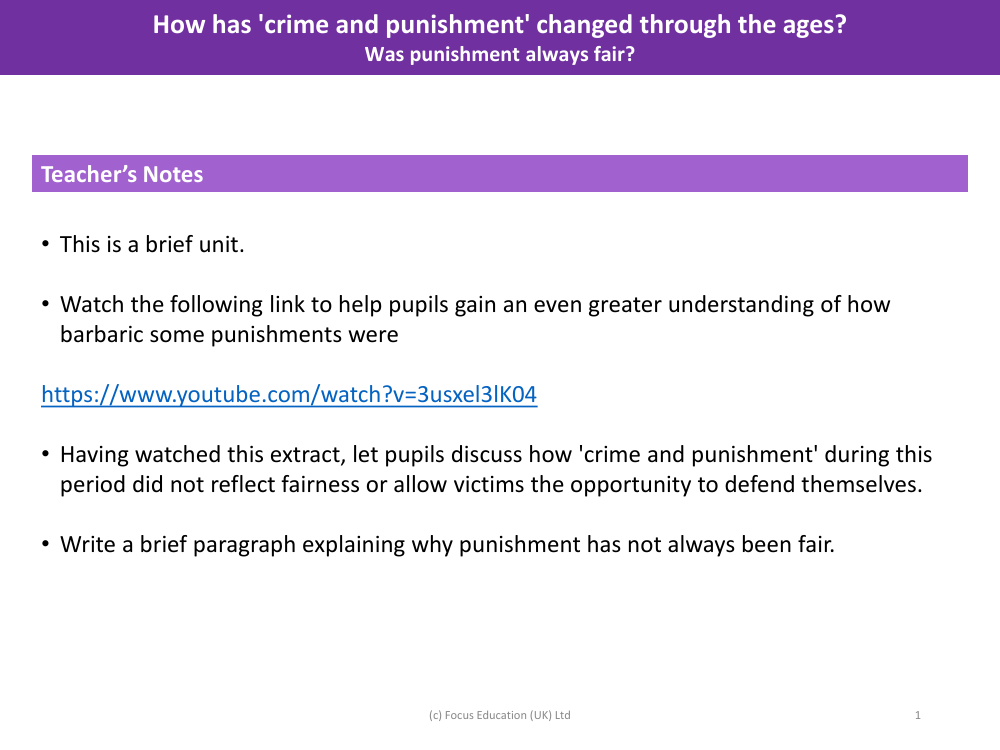Was punishment always fair? - Teacher's Notes

History Resource Description
The unit on 'crime and punishment' aims to provide pupils with a historical perspective on the evolution of justice systems and the fairness of punishments. It includes an examination of past punitive measures, which are often seen as barbaric by modern standards. A recommended video serves as a starting point for students to visualise and comprehend the severity of punishments from a bygone era. After viewing, students are encouraged to engage in a critical discussion about the fairness of 'crime and punishment' during the time period covered, particularly focusing on the lack of opportunity for the accused to defend themselves. This reflection leads to the recognition that throughout history, punishment has not always been administered fairly, and often, it did not reflect the severity of the crime or offer justice to the victims.
Over the centuries, 'crime and punishment' has undergone significant transformations, reflecting societal changes in morality, legal thought, and human rights. The concept of fairness in punishment has not been a constant, with many historical periods characterised by harsh, and often disproportionate, punitive measures. The fairness of a punishment is influenced by the legal and societal norms of the time, which have evolved to increasingly prioritise rehabilitation over retribution, due process, and the protection of individual rights. This unit invites students to contemplate these changes and understand that the concept of fairness in punishment is a relatively modern development that continues to evolve.



